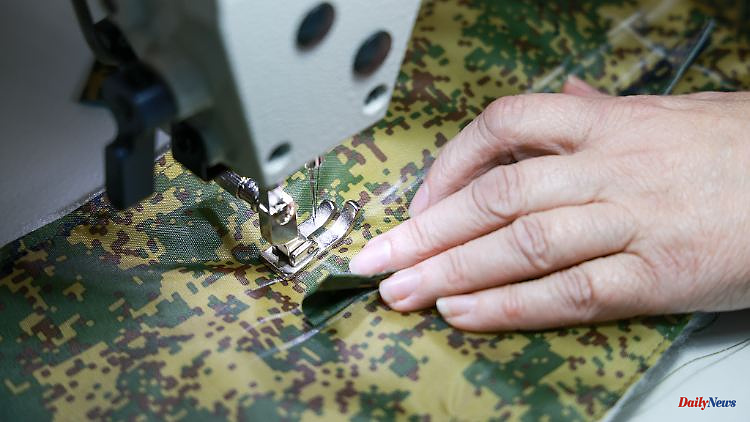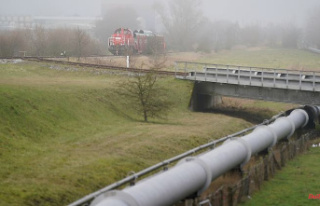After a year of war against Ukraine, Russia's economy is reaching its limit. Less money flows into the household from the energy business, while the war costs rise. According to the IW, only money remains for what is supposedly essential: armament and social affairs to prevent unrest.
The Russian economy is increasingly affected by the conflict with Ukraine. "In fact, Russia has become a war economy," says an analysis by the Institute of German Economics - in short: IW. Extensive Western sanctions would have apparently weakened Russia economically, but not brought it to its knees. "Since an end to the war is currently not in sight and the decoupling of the West from Russia is progressing further and further, Russia will have to make do with increasing expenditure and falling income in the future."
The current planning of the Russian state budget clearly shows a move towards "a war economy guided by defense and social policy - a so-called guns-and-butter strategy". The intention is clear: "rely on military strength in foreign policy and maintain social peace through social policy in domestic policy and nip protests and opposition in the bud through repression".
In order to be able to finance this strategy, expenditure in the Russian budget rose by a total of 14 percent by 2025 compared to 2022. Russia's expenditure on internal and external security in 2023 alone rose by a quarter to 124.7 billion euros within a year, which was offset by a loss of income from oil and gas exports of 35.5 billion euros.
To finance the budget, more debt would be taken on than in previous years. The planned debt service will increase by almost a third in 2025 to over 21 billion euros in 2022. According to IW, despite these developments and the restrictions on international capital markets, Russia will probably be able to remain solvent. Because the country could draw on reserves that it built up in times of high capital inflows.
"In order to further weaken Putin's war machine, the economic pressure must be maintained through sanctions and expanded internationally," said the institute, which is close to employers. The Asian democracies in particular have not yet joined the energy embargo, which would be an important step given Russia's high dependency on export earnings.
"The upper price limits for Russian energy should be promoted and their effectiveness should be constantly checked," emphasized the economists. In addition, loopholes to circumvent the sanctions would have to be plugged and Western re-exports would have to be monitored more closely. "For example, Turkey, whose exports rose by 62 percent in 2022 compared to the previous year, must be taken into account for goods that fall under the EU sanctions lists."












